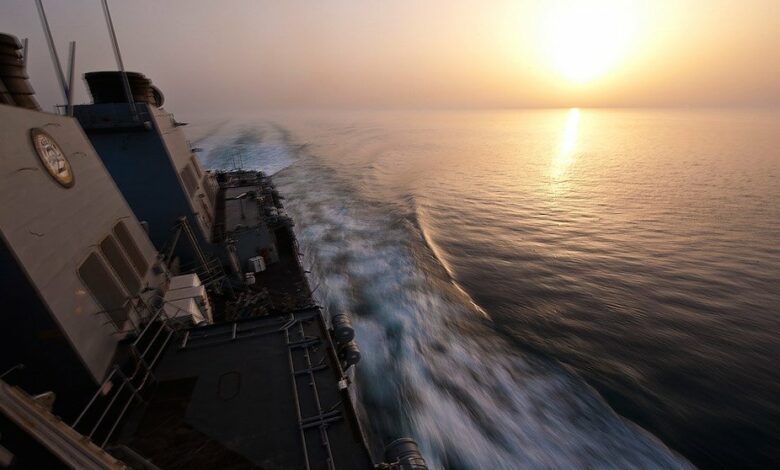
Urgent talks underway to ensure safety in the Red Sea
Urgent diplomatic discussions are going on around the world to ensure the chaotic scenes recorded in the southern Red Sea in recent weeks do not escalate further.
The Houthis from Yemen, backed by Iran, entered the Israeli/Hamas war on the side of the Palestinians a month ago and have since harassed many ships passing near its waters, with drones, missiles, guns, as well as taking one car carrier and its 25 crew hostage.
Iran’s defence minister Mohammad Reza Ashtiani warned today that a proposed US-backed multinational task force to protect shipping in the Red Sea would face “extraordinary problems”.
“Nobody can make a move in a region where we have predominance,” he said, referring to the Red Sea.
The US has been in talks with allies to create a naval force similar to the one that patrolled pirate-infested Somali waters a decade ago.
Japan’s foreign minister Yoko Kamikawa met with his Iranian counterpart Hossein Amir-Abdollahian in Geneva yesterday seeking to calm the volatile situation in the Red Sea as well as free the Galaxy Leader, a Nippon Yusen Kaisha-operated car carrier abducted last month.
Splash has been reporting on the escalation in attacks in recent days, something also discussed in a new report from UK maritime security consultants Dryad Global.
“The recent incidents mark a concerning escalation by the Houthis, employing several new tactics which is an unprecedented move. Houthis are also using missiles and drones to conduct attacks on vessels in the region,” Dryad Global noted.
Houthi forces are also targeting vessels via VHF Channel 16 requesting vessels change course to headings that would bring them closer to Yemen.
“Expect the boardings, drone, and missile attacks to continue to escalate in this region for the foreseeable future. Along with the drone and missile issues, there have also been numerous reports of small vessels and helicopters sighted on patrols within the region which could lead to further threats to shipping,” Dryad Global warned.
“These attacks have become more prevalent in recent weeks and could lead to shifting trade patterns, increased convoys and potentially higher insurance costs,” shipping analysts at Jefferies, an investment bank, suggested yesterday.
Brokers at Braemar have noted minimal impact on the shipping market thus far, with most vessels still transiting the Red Sea as usual. Transiting around Africa adds approximately two weeks to voyages.